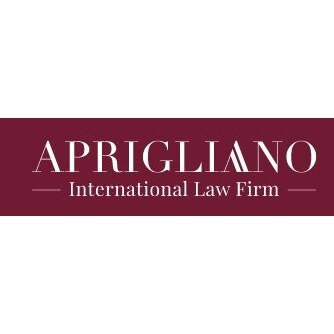Best Government Relations & Lobbying Lawyers in Milan
Share your needs with us, get contacted by law firms.
Free. Takes 2 min.
List of the best lawyers in Milan, Italy
About Government Relations & Lobbying Law in Milan, Italy
Government Relations and Lobbying in Milan, Italy, play a critical role in shaping public policy and influencing legislative and regulatory decisions. Lobbying refers to the act of advocating for specific policies or interests to government officials. In Milan, lobbying activities are conducted within the framework of Italian and European Union laws. Companies, non-profits, and professional lobbyists engage with government officials to propose changes, provide information, or support political agendas that align with their interests. Understanding the complexities of local governance and maintaining compliance with relevant rules is crucial for success in this field.
Why You May Need a Lawyer
Engaging in Government Relations and Lobbying without proper legal guidance can lead to misunderstandings or non-compliance with local laws. Here are common situations where you might need a lawyer:
- Helping navigate the regulatory landscape and ensuring compliance with transparency rules.
- Assisting in drafting and presenting effective lobbying strategies and communications.
- Advising on ethical considerations and conflict of interest issues.
- Representing your interests in negotiations or meetings with government bodies.
- Advising on registration and disclosure requirements under Italian law.
Local Laws Overview
Lobbying activities in Milan are governed by a combination of Italian national laws and European Union regulations. Key aspects include:
- Lobby Transparency: Lobbyists must disclose their activities and interactions with government officials to ensure transparency.
- Registration Requirements: Organizations engaging in lobbying may need to register with specific regulatory bodies.
- Ethical Standards: Lobbyists are expected to adhere to high ethical standards, avoiding any actions that could be perceived as corrupt or unethical.
- Data Protection: Compliance with the General Data Protection Regulation (GDPR) is mandatory when handling personal data.
- Anti-Corruption Measures: Strict laws are in place to prevent corruption and unethical influence on public officials.
Frequently Asked Questions
What is lobbying, and who are lobbyists?
Lobbying involves advocating for specific interests to influence public policy or government decisions. Lobbyists can be individuals or organizations acting on behalf of themselves or their clients.
Is lobbying legal in Italy?
Yes, lobbying is legal in Italy; however, it is regulated to ensure transparency and ethical practices. Compliance with relevant laws is essential.
Do I need to register as a lobbyist in Milan?
Registration may be required depending on the scope and nature of your lobbying activities. Legal advice can help determine your specific obligations.
What kind of information do I need to disclose as a lobbyist?
Lobbyists may need to disclose their clients, the issues they are advocating for, and interactions with public officials to enhance transparency.
How can a lawyer assist me in lobbying activities?
A lawyer can provide guidance on compliance with laws, help draft effective strategies, and ensure ethical standards are upheld throughout your lobbying efforts.
What are the consequences of non-compliance with lobbying regulations?
Non-compliance can result in fines, reputational damage, and bans from engaging in future lobbying activities. Proper legal advice can help avoid these issues.
How does lobbying differ at the local and national levels in Italy?
While principles may be similar, local lobbying can involve different procedures and require understanding specific regional governance frameworks.
Are there restrictions on gifts or donations to public officials?
Yes, there are strict rules regarding gifts and donations to prevent conflicts of interest and corruption, with consequences for violations.
Can non-profits engage in lobbying in Milan?
Yes, non-profits can engage in lobbying to advocate for policies that align with their missions, provided they comply with applicable laws.
What resources are available for understanding lobbying laws in Milan?
Legal experts, government transparency initiatives, and industry associations are valuable resources for keeping informed on current regulations.
Additional Resources
For additional information and support on Government Relations and Lobbying, consider the following resources:
- Italian Ministry of Justice: Provides comprehensive information on legal standards and requirements.
- Lombardy Regional Government: Offers specific guidelines related to local governance and lobbying activities within the region.
- Transparency International Italy: An organization focused on promoting transparency and preventing corruption in public life.
- Local law firms specializing in government relations can provide tailored legal advice and representation.
- Industry associations focused on lobbying and public affairs offer workshops, networking, and educational resources.
Next Steps
If you require legal assistance in Government Relations & Lobbying, consider taking the following steps:
- Research and contact local law firms specializing in lobbying laws to understand their services and expertise.
- Schedule consultations with lawyers to discuss your specific needs and clarify how they can assist you.
- Ensure you understand all legal obligations, registration requirements, and ethical standards before engaging in lobbying activities.
- Stay informed about any legal or regulatory changes by reviewing updates from relevant governmental and industry bodies.
With proper legal guidance, you can navigate the complexities of Government Relations & Lobbying in Milan effectively and ethically.
Lawzana helps you find the best lawyers and law firms in Milan through a curated and pre-screened list of qualified legal professionals. Our platform offers rankings and detailed profiles of attorneys and law firms, allowing you to compare based on practice areas, including Government Relations & Lobbying, experience, and client feedback.
Each profile includes a description of the firm's areas of practice, client reviews, team members and partners, year of establishment, spoken languages, office locations, contact information, social media presence, and any published articles or resources. Most firms on our platform speak English and are experienced in both local and international legal matters.
Get a quote from top-rated law firms in Milan, Italy — quickly, securely, and without unnecessary hassle.
Disclaimer:
The information provided on this page is for general informational purposes only and does not constitute legal advice. While we strive to ensure the accuracy and relevance of the content, legal information may change over time, and interpretations of the law can vary. You should always consult with a qualified legal professional for advice specific to your situation.
We disclaim all liability for actions taken or not taken based on the content of this page. If you believe any information is incorrect or outdated, please contact us, and we will review and update it where appropriate.














